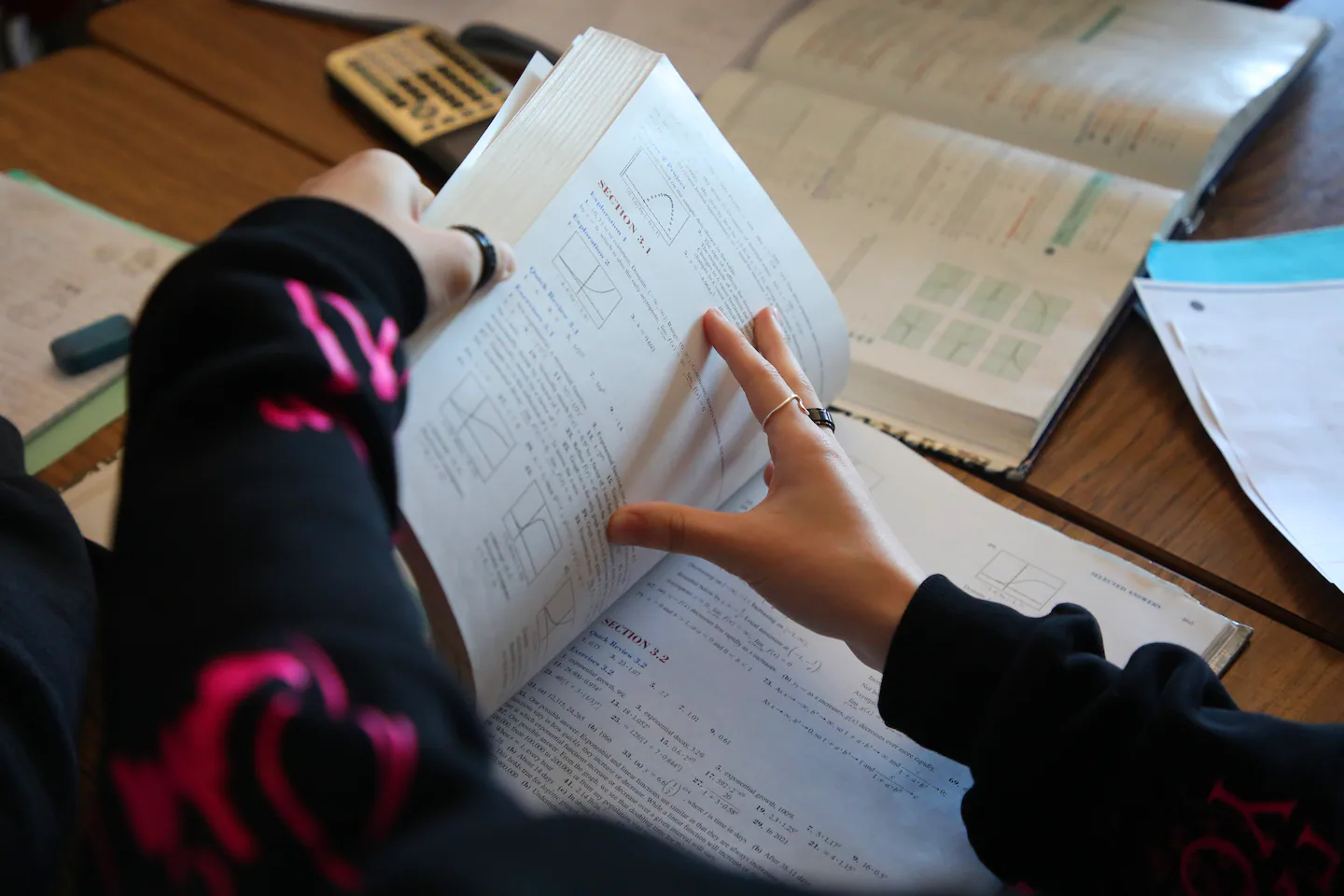
The pressures parents across the United States are putting on their children to succeed is perhaps having the opposite effect, says Ted Dintersmith, executive producer of a new documentary, “Multiple Choice.”
Dintersmith traveled across the country visiting schools and interviewing parents of K-12 students.
What he found was that in the chase for academic achievement, something is lost.
“Multiple Choice” focuses on one high school district in Winchester, Va., that is giving students post-secondary life choices.
Dintersmith talked with the Globe about the film, and offered his thoughts about how Rhode Island schools can become more innovative.
Q: This is probably too simplistic, but it seems like two things are happening in the higher education conversation at the same time: Folks on the left who ordinarily would argue that most students should attend college after high school are realizing that there are other pathways to earn a good living, and folks on the right increasingly believe colleges have been overrun by liberals. Are we going to see an even sharper decline in college enrollment in the coming years, and what will that mean?
Dintersmith: Without doubt, college enrollments will decline sharply in coming years. In addition to the important drivers you cite, there’s a steady downward demographic trend in US college-age kids, and the Trump administration is stupidly driving away top foreign talent. Elite colleges will still fill all seats, but others will be hammered. They face a stark choice: innovate in the spirit of Northeastern’s co-op model, or plan on shutting the doors. And colleges aren’t known for agile innovation, so we can expect many to go by the wayside.
Your film focuses on Winchester, Va., and looks at a school district that has truly embraced career and technical education. It’s still a relatively small district, so what can larger districts learn from Winchester?
Dintersmith: “Multiple Choice” showcases a small district innovating at the high-school level. Large districts can do this, with the added luxury of differentiating among multiple high schools. But to be clear, the core unit of innovation is the high school, with leaders bringing the vision and courage to make the high school diploma really and truly count toward the goal of launching young adults into lives of purpose, with multiple informed post-secondary life choices.
What do you want parents to take away from the film?
As I travel across America visiting schools, I interview lots of parents of K-12 kids. Invariably, they share, “You know, I just want my child to be happy.” But when I probe a bit, they’re doing almost everything possible to make their child miserable: Pressure to get great grades, develop parent-driven proficiencies, deliver stellar SAT scores, get into elite colleges, pursue a “prestigious” career. This isn’t how parents behave in most other countries and I wish US parents would chill out a bit when it comes to pushing their child to attain academic perfection — which can be so harmful to their child. The ground rules have changed. Kids will thrive as adults if they can create, invent, leverage AI, and/or excel in hands-on professions — the competencies diminished in the chase for academic “achievement.”
What is your take on the state of education in Rhode Island? Over the last 16 or so years, state leaders have brought in three education commissioners — Deb Gist, Ken Wagner, and now Angélica Infante-Green — who have all had ambitious goals for public schools, but have been met with resistance and ultimately struggled to execute their agendas. Why is it so difficult to implement reforms?
Oh, dear. It sounds harsh, but Rhode Island has made no progress because it keeps chasing the wrong goals. When “ambition” means closing a test-score gap with Massachusetts, the result is predictable: endless drills and worksheets, bored kids and demoralized teachers, and graduates ill-prepared for adult life. And due to these education struggles, Rhode Island keeps losing people and businesses. Our state needs leaders who pursue a vision of schools that prepare kids for life and fuel economic growth. “Multiple Choice” shows the power of career-based learning in schools with deep ties to the local community. But if Rhode Island continues to cling to an obsolete model, we shortchange our kids, communities, and state. An agile, dynamic Rhode Island could make its schools a magnet for families and businesses. Sadly, though, the approach for years brings to mind the maxim, “The definition of insanity is doing the same thing over and over and expecting different results.”
You’re going to be holding a series of community events in Rhode Island over the next year to try and spark conversation about the future of career and technical education. What’s your ultimate goal?
Rhode Island’s small size could be its greatest strength. We have the chance to become a national model for rethinking education in uplifting, future-facing ways. My non-profit WhatSchoolCouldBe.org has been filming remarkable progress in Wyoming, where Governor Mark Gordon isn’t chasing higher test scores to catch up with neighboring Utah. He’s setting bold goals and urging his educators to innovate—helping kids discover their paths through challenges that build essential skills and mindsets. Here in Rhode Island, I hope our film sparks voters and communities to demand the same: bold education innovations that prepare our kids to thrive in a world changing at warp speed.
This story first appeared in Rhode Map, our free newsletter about Rhode Island that also contains information about local events, links to interesting stories, and more. If you’d like to receive it via email Monday through Friday, you can sign up here.
The Boston Globe’s weekly Ocean State Innovators column features a Q&A with Rhode Island innovators who are starting new businesses and nonprofits, conducting groundbreaking research, and reshaping the state’s economy. Send tips and suggestions to RINews@globe.com.



